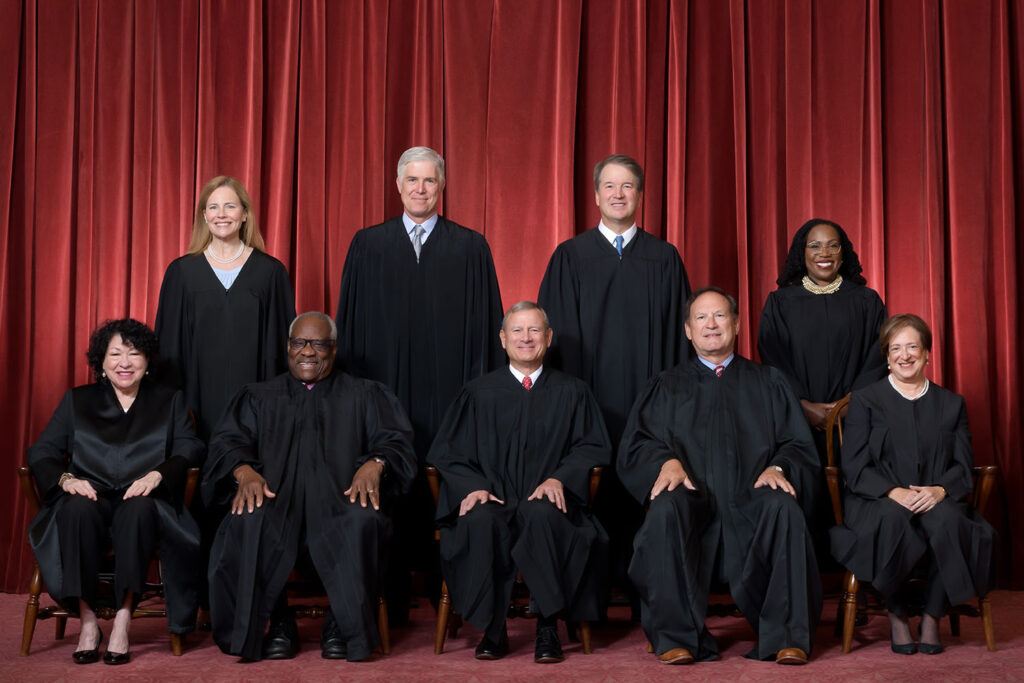
By Dave Workman
Editor-in-Chief
The U.S. Supreme Court on Tuesday distributed five potentially seismic gun rights cases involving challenges to gun and magazine bans in two different federal court circuits—the Fourth and Seventh—for conference May 16, and if these cases are granted certiorari, the outcome would impact pending cases in Washington, Oregon, California and laws in other states where bans are in effect.
The potential, should the Court decide to accept the case and schedule arguments sometime in the fall, cannot be over-estimated. A Second Amendment victory, protecting so-called “semiautomatic assault weapons” and their original capacity magazines holding more than ten cartridges, would be a crushing defeat for the gun prohibition movement and anti-gun Democrats. Such a ruling would undoubtedly also impact laws in Connecticut, Massachusetts, Delaware, New York, New Jersey, Hawaii and the District of Columbia.
Two of the cases involve the Second Amendment Foundation. They are known as Harrel v. Raoul (Illinois) and Bianchi v. Frosh (Maryland). Also distributed were cases known as Gun Owners of America v. Raoul, Caleb Barnett v. Raoul and Javier Herrera v. Raoul, all three which come from Illinois. There has been some speculation about these cases possibly being consolidated if certiorari is granted.
“Today, the Supreme Court’s docket reflected that both of our cases challenging Illinois’ and Maryland’s ban on so-called ‘assault weapons’ were distributed for conference,” said SAF Executive Director Adam Kraut in a release to the media. “We are hopeful that the Court will discuss these cases during their next conference in mid-May and ultimately grant cert so that millions of Americans can enjoy the same Second Amendment rights their counterparts do throughout the country. It is time for the Supreme Court to confirm that these modern firearms are in fact protected by the Second Amendment.”
“We’re encouraged that these five cases, all essentially dealing with the same issue in two different federal court circuits, were distributed for Supreme Court conference at the same time,” SAF founder and Executive Vice President Alan M. Gottlieb acknowledged. “This could be the signal for which we have been waiting, that the Supreme Court may be ready to consider cases challenging bans on the most popular firearm in America today and their magazines. These firearms are owned by millions of peaceable citizens, and because they are in common use, they certainly qualify for Second Amendment protection.”
The ramifications of a high court review of semi-auto and magazine bans would be staggering. Gun rights advocates contend such bans are unconstitutional because they are directed at the very types of firearms which should be protected by the Second Amendment. Their magazines are necessary to make such firearms function.
Upon learning of the Court’s distribution of the cases, SAF extended recognition and thanks to the various groups involved in the two cases, including SAF’s sister organization, the Citizens Committee for the Right to Keep and Bear Arms, a national grassroots activist group, now in its 51st year. In addition, the Firearms Policy Coalition (FPC) and Field Traders LLC, are part of the Maryland case, while the Illinois State Rifle Association, C4 Gun Store, Marengo Guns and FPC are involved in the Illinois case. There are individual citizens involved in both cases as well.
According to Gottlieb, SAF has long been engaged in strategic litigation, working to get the right cases advanced through the court system, in an effort to fulfill its mission of winning firearms freedom one lawsuit at a time.





